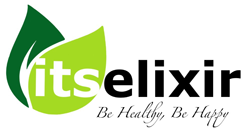
With health and wellness an ongoing part of the national conversation, hypoallergenic beauty products have become a mainstay in our makeup bags. So, how can we find the best hypoallergenic makeup brands that are kind to our skin?
First things first – what does hypoallergenic mean?
Certain high street cosmetics can cause us to have reactions, particularly if we have sensitive skin. An allergic reaction may present as redness, itching or flaking, and may even be painful.
Hypoallergenic products are those which are less likely to cause these sorts of reactions. This is because they do not contain irritant chemicals such as fragrances or preservatives. It’s particularly important to use hypoallergenic hair care products if you have a sensitive scalp.
How can I tell if my beauty products are hypoallergenic?
There will always be some trial and error when it comes to choosing hypoallergenic beauty products. This is because the term “hypoallergenic” isn’t regulated – just like organic products – so it’s more of a grey area than certified vegan products, for example.
Instead, you should look at the ingredients list. Hypoallergenic hair care products, for example, may be fragrance-free, as well as free from products such as parabens and PPD. Fragrance is one of the biggest irritants in makeup and shampoo products, so always choose a fragrance-free brand.
You may find some added assurance from the certifications on the bottle. For example, if your shampoo is approved by the Vegan Society, then it’s not going to have been tested on animals. As a rule, you can assume that this will contain fewer chemicals than typical high street brands. Some brands may explicitly reference it – for example, shampoos for babies may include labels such as ‘tear-free formula’.
If you’re getting your hair treated in a salon, you will always be advised to have a patch test. This involves placing a small amount of dye on your inner elbow or behind your ear to test for reactions. You can also do this at home – for example, if you’re experimenting with henna – to see if you do have allergies. It’s possible you might have one without even knowing. In 2018, more than 9 million children in Britain were reported to have skin allergies.
Hypoallergenic makeup brands
If you’re looking for skin-friendly beauty products, you should look not only for a lack of chemicals, but also lovely natural ingredients.
Burt’s Bees, for example, has a lovely range of lip balms, mother and baby, and hand and body skin products. The main ingredients within these products are completely natural, including royal jelly, shea butter, pomegranate, orange and lemon.
Meanwhile, Bare Minerals can give you a glowing complexion with its minimal ingredient foundation powder. The company proudly shouts about the fact it is free of parabens, chemical sunscreens, mineral oil or microbeads – which means it’s gentle to your skin and to the environment.
Hypoallergenic haircare
Hair dye can be notorious for causing allergic reactions, which is why you should always do a skin test 48 hours in advance. To minimise the risk of reactions, choose a chemical-free dye such as a henna-based dye, which uses all-natural ingredients to enhance your colour. Henna is also a well-known antiseptic and can help to clear away the signs of irritation such as red, flaky skin.
Hypoallergenic beauty products can also look after your scalp while keeping your hair clean. For healthier all-round skin including your hair, you should try shampoo for sensitive skin. This works by attacking the bacteria that cause overproduction of sebum and greasy flakes. Henna shampoo is a natural anti-dandruff formula, so it will rid your hair of the grease without drying out your scalp.
If you’re worried about applying hypoallergenic beauty products straight to the roots or just want to experiment, you may consider henna hair mascara instead. This is just as gentle on the skin and hair, without a drastic colour change.
To keep your hair soft and strong as well as clean, you should follow up your hypoallergenic haircare routine with a conditioner for sensitive skin. Though conditioner is generally applied beyond the roots and down to the tips, there is no harm in hypoallergenic beauty products like conditioner touching the skin. Even better, for a long-term shine and unbeatable softness, you can try a nourishing, organic hair mask.
Why go hypoallergenic?
Even if you don’t suffer from sensitive skin, there are myriad benefits to choosing hypoallergenic. You may notice brighter skin in general, while hypoallergenic products are also more likely to be organic and avoid animal testing. You may also discover an allergy you never knew you had!
Choosing hair and makeup with organic ingredients means that animal habitats are not being destroyed. Look after your skin and Mother Earth by making the hypoallergenic switch.
